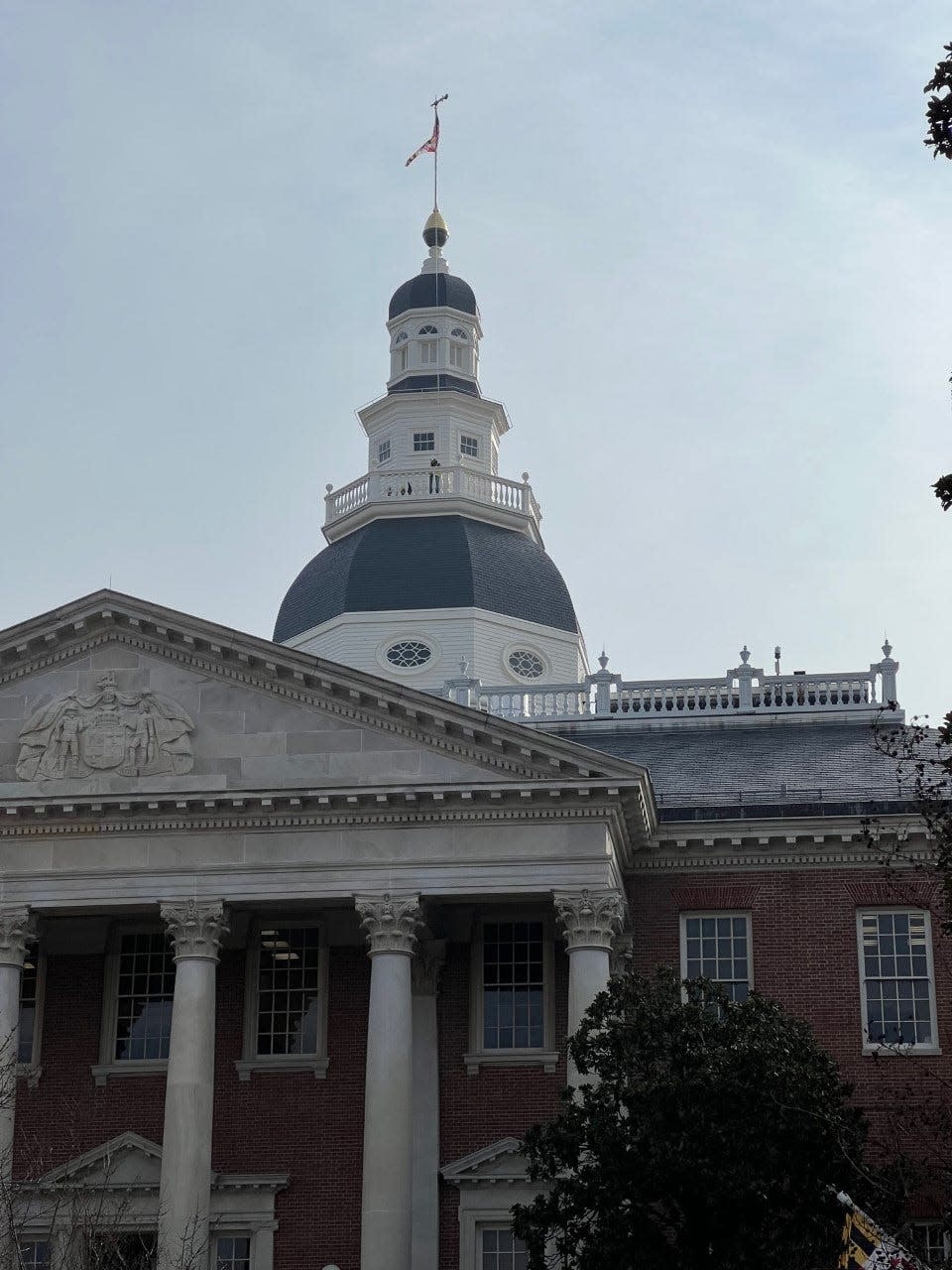Big elections changes could come for Maryland, and here's what lawmakers are considering
- Oops!Something went wrong.Please try again later.
- Oops!Something went wrong.Please try again later.
More than 70 election-related bills have been proposed this year during the Maryland General Assembly’s legislative session in Annapolis. Sen. Cheryl Kagan, D-Montgomery, alone has eight. Such a bounty of bills begs the question: What exactly are lawmakers looking to change?
“Maryland already has excellent elections,” said Kagan, sponsor of a bill called the Election Reform Act of 2023, S.B. 864, during a Feb. 24 hearing on one of her elections bills. “In no way, do I want to imply that we are having problems, that there’s anything about accuracy or diligence, or inclusion or anything. It’s just about small details that will allow us to make our election system even better.”
One legislative effort looks to put something that has already been occurring — the pre-processing of mail-in ballots by election workers — into law.

More:From Ukraine to Maryland's Eastern Shore, this SU professor observes elections up close
“Maryland is unique in the nation in that our laws and our regs don’t allow processing mail in ballots until after Election Day,” said Kagan, in an interview in her office after the bill hearing. In 2020, Republican Gov. Larry Hogan issued a proclamation during the COVID-19 pandemic to allow for canvassing prior to the November Election Day to handle the deluge of mail-in ballots.
Last year, no early canvassing was permitted during the primary, and the State Board of Elections had to file an emergency petition in circuit court to allow the ballots to be canvassed before the general election. The constitutionality of that request was being challenged in court until as recently as last week, when the U.S. Supreme Court decided not to hear the case.
Multiple reasons for pre-canvassing mail-in ballots, experts say
Election experts say the move to create a law to allow for pre-canvassing is a wise one.
“It’s less likely that this will become a political football to use to try and cast doubt, baselessly I might add, on the legitimacy of the process,” said David Levine, elections integrity fellow at the Alliance for Securing Democracy, a nonpartisan initiative housed at the German Marshall Fund of the United States, headquartered in Washington, D.C.
The early canvassing also makes it less burdensome for officials on Election Day, said Levine, a Maryland resident who served as the elections director in Ada County, Idaho, until 2019.
“It also cuts down on the likelihood of malign actors exploiting the period after Election Day to try and cast doubt on the mail ballot process,” he said. The U.S. House Jan. 6 Committee elevated that concern last summer and Maryland candidates shared the worry about what a delay in results might mean for those pushing conspiracies.
Washington County Deputy Election Director Barry Jackson has been pushing for the pre-canvass since before the practice was widespread in Maryland.

He chaired the Modernizing Absentee Ballot Opening Procedures Committee through the Maryland Association of Election Officials a couple election cycles ago, before the pandemic.
“We developed actual legislation that would allow us to open mail-in ballots ahead of time,” said Jackson, in a phone interview, “and we didn’t get much traction until last year.”
Maryland’s third-most western jurisdiction had about 11,000 mail-in ballots last election, Jackson said. Over half of those were able to be canvassed before Election Day, he said.
More:Washington County works ahead, counts mail-in ballots before Election Day
Bill would require pre-canvassing of mail-in ballots
About half of Maryland’s jurisdictions, including most of the larger counties, took advantage of the ability to pre-canvass. Kagan said her bill will require jurisdictions to pre-canvass unless they receive a waiver from the State Board of Elections administrator allowing them to wait.
Somerset County, for instance, received a total of 1,110 mail-in ballots last election, reducing the urgency that faces Kagan’s home county, Montgomery, where 118,530 mail-in ballots were received.
Kagan’s bill, the Election Reform Act, encompasses eight election-related issues including:
Protecting election officials from violence
Reforming the state’s Electoral College mechanism
Domestic manufacturing of voter equipment
Allowing unaffiliated votes to vote for circuit court judges
Addressing stray marks on ballots
Stipulations for internet ballot requests
Mail-in ballot delivery deadlines for vendors
A study required of provisional ballots in upcoming elections
It’s been deemed the “kitchen sink bill,” a result of the limitation on legislation senators can bring forth in the 90-day session. Other pieces of legislation address recounts and, in certain instances, an insufficient number of candidates during a primary.
As for the bill that would allow the pre-canvassing of votes, Kagan said: “Prompt reporting reassures voters that their democracy is working.”
After Hogan vetoed the bill last year due to the lack of a signature-verification section in the legislation, Kagan said she’s optimistic since the bill passed last year in both chambers.
“I am expecting the bill to move forward,” she said.
Dwight A. Weingarten is an investigative reporter, covering the Maryland State House and state issues. He can be reached at dweingarten@gannett.com or on Twitter at @DwightWeingart2.
This article originally appeared on The Herald-Mail: Mail-in ballot processing tops in Maryland elections bills

